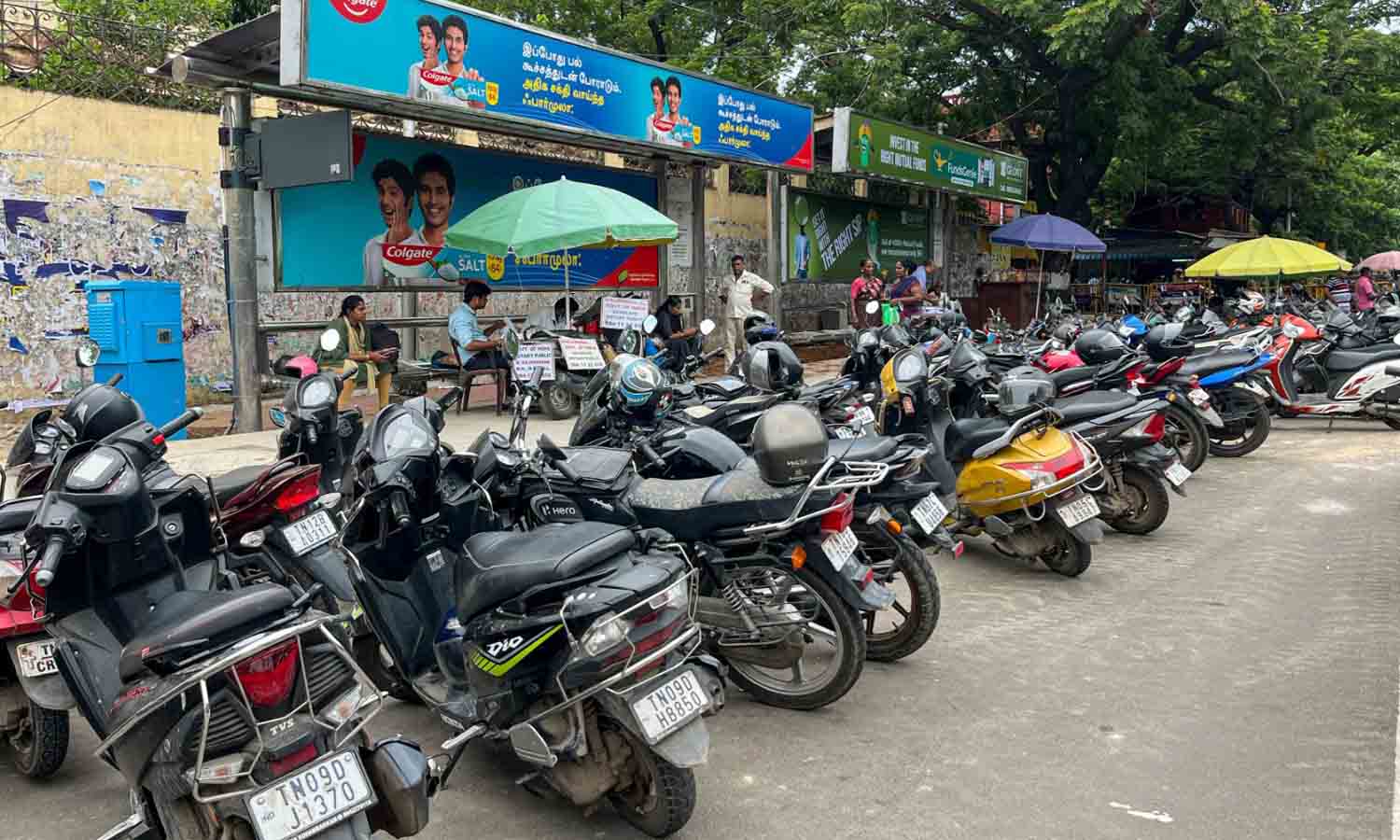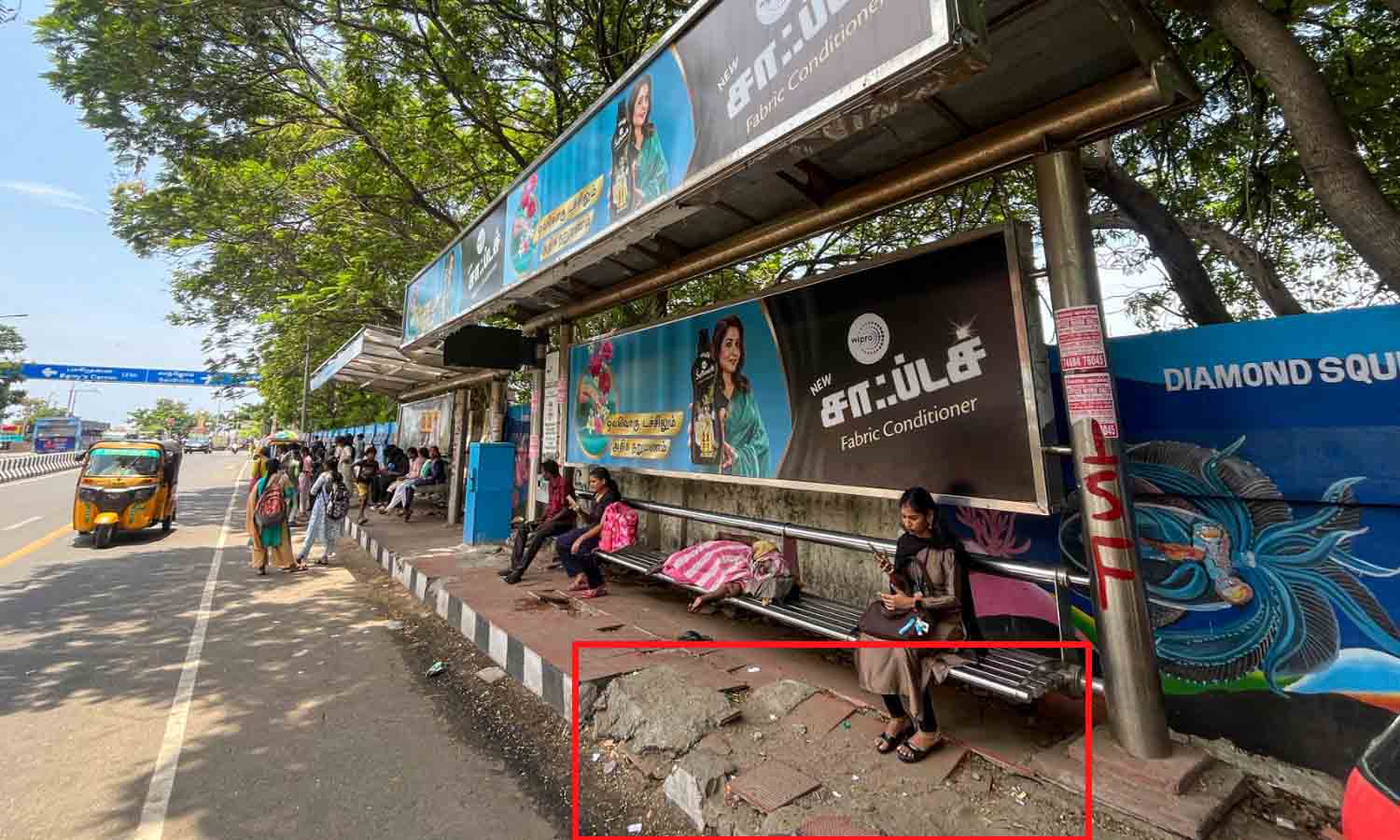Barriers deprive PwDs access to low-floor buses in Chennai
Two-wheeler parking, broken pavements, lack of ramps, stray dog menace...
CHENNAI: A year after low-floor buses were reintroduced in Chennai to make travel easier for persons with disabilities (PwDs), wheelchair users say poor infrastructure at bus stops has left them struggling to use the service. So far, around 700 low-floor buses are plying in the city, including the electric buses.
Steep or wrongly placed ramps, broken pavements and bus shelters block access. Indifferent crew behaviour also continues to make boarding and alighting a daily challenge, forcing many to depend on others despite the promise of independent travel.
While the long-pending demand for accessible buses has been met, disability rights activists pointed out the benefits were being undermined by poor planning and a lack of attention to last-mile accessibility.
R Sathish Kumar, a wheelchair user and activist, said road and bus stop conditions varied widely across the city, with only a few exceptions. “Many in my circle use low-floor buses to travel to Vidya Sagar in Kotturpuram, Gandhi Mandapam and the beach roads. But 3D shelter chairs eat into passenger space, and shelter pillars are placed too far forward.
• lack of ramps at the Vivekanandha House bus stop make accessibility a challenge for persons with disability
We want the Corporation and other agencies to design uniform roads, footpaths and bus stops so that PwDs can travel without assistance,” he said. “Ramps are either broken or often too steep or wrongly positioned. Shelters lack designated waiting areas, and bikers routinely parked in front of them.”
The Chennai Corporation has been constructing a model bus stop for PwDs near Vivekanandha House. “Some changes have to be made like changing the size of the seating arrangements in bus shelter. The existing one would make it inconvenient for wheelchair users. Also, the tactile replacements are essential,” he added.
Selvam, a wheelchair user from Ashok Pillar, said drivers rarely stopped close to the designated points. “Ramps are often on the road, so buses halt far away. I try to board independently, but the poor infrastructure forces me to rely on others,” he said. “A conductor once refused to open the ramp at Kilambakkam until departure time, forcing another passenger to help him.”
Anushiya, who commutes between Poonamallee and Kolappanchavadi, said the initial excitement over low-floor buses faded quickly. “Shelters and footpaths are still in a poor shape. Once, a driver ignored my signal when I was alone at the stop. In the rain, ramps get muddy and slippery,” she averred.
A senior MTC official said that if specific complaints were filed with bus route number, date and time, action would be initiated against the crew for skipping stops and/or not assisting the PwDs to board the bus. “We’ve given strict instructions to the crew for handling passengers in wheelchair,” the official said.
• Broken pavements at the Kilpauk Garden Road bus stop
F Joel Shelton Terrance, policy researcher at Reach the Unreached, said even renovated bus stops failed to meet standards. “People think installing a ramp solves the problem. The correct slope is 1:12 with a non-slip surface and handrails, but this is rarely followed,” he opined.
In April 2023, the Madras High Court directed the State to increase the procurement of low-floor buses after hearing petitions that highlighted the absence of accessible buses in Chennai.
The court ordered that bus stops be ‘scientifically designed’ for wheelchair access, mobile apps be provided for real-time tracking of low-floor buses, and that drivers and conductors be trained to assist PWDs. It also mandated that any future bus stop construction or repairs must prioritise accessibility, with ramps connecting directly from the platform to the bus entrance.
Following the order, the State committed to procuring hundreds of low-floor buses and adding app-based route information. The court stressed that while high-floor buses could be purchased in the short term, the long-term goal must be a fully low-floor fleet within cities.
The GCC, which manages 1,560 bus shelters, said it was repairing 732 of them, with 602 completed and the rest due this month. Officials claimed that the new SOPs mandate full shelter coverage, a 1:20 slope for ramps, 450 mm-high seating, and stainless steel handrails for all PWD ramps, echoing the court’s directives.





